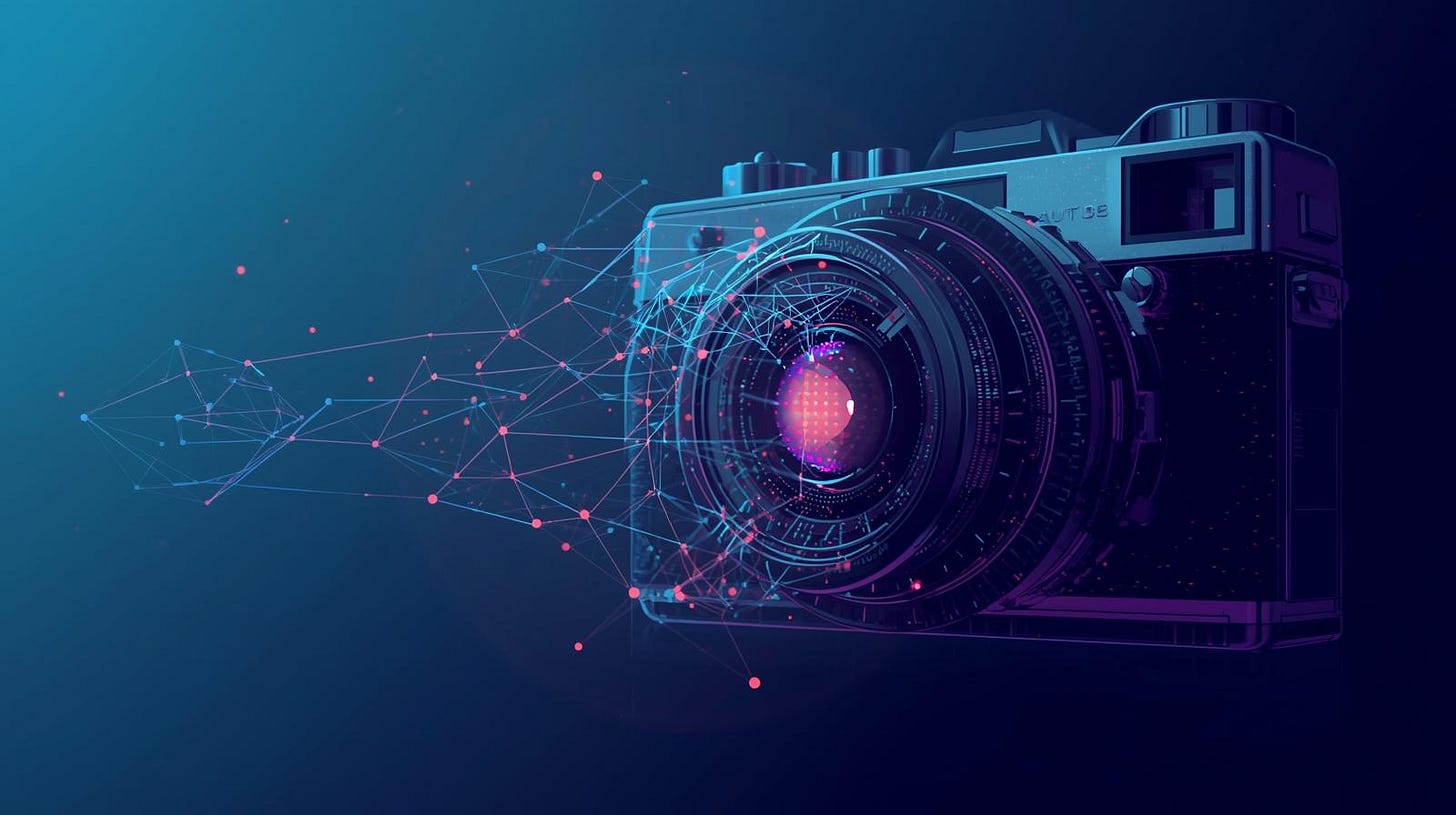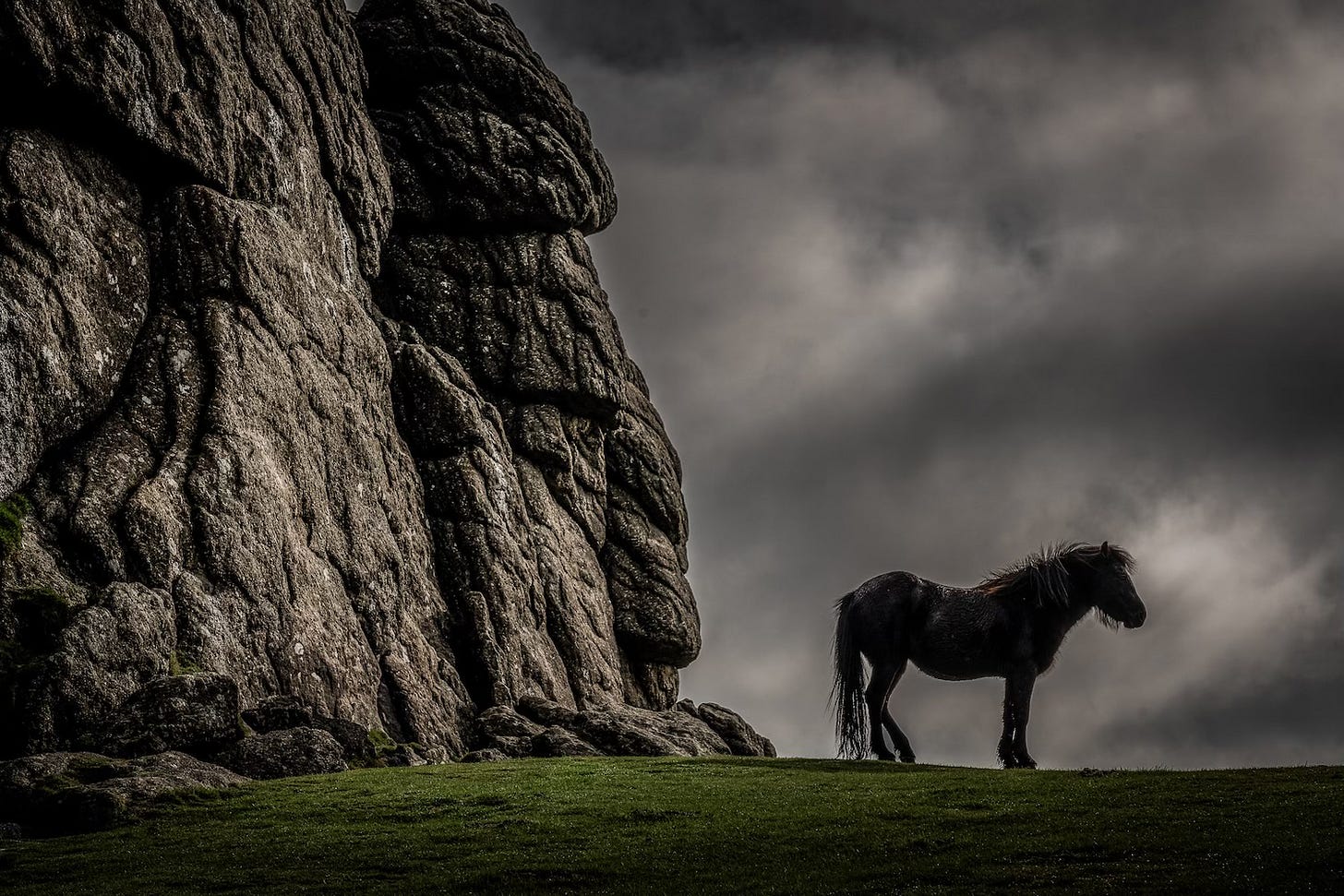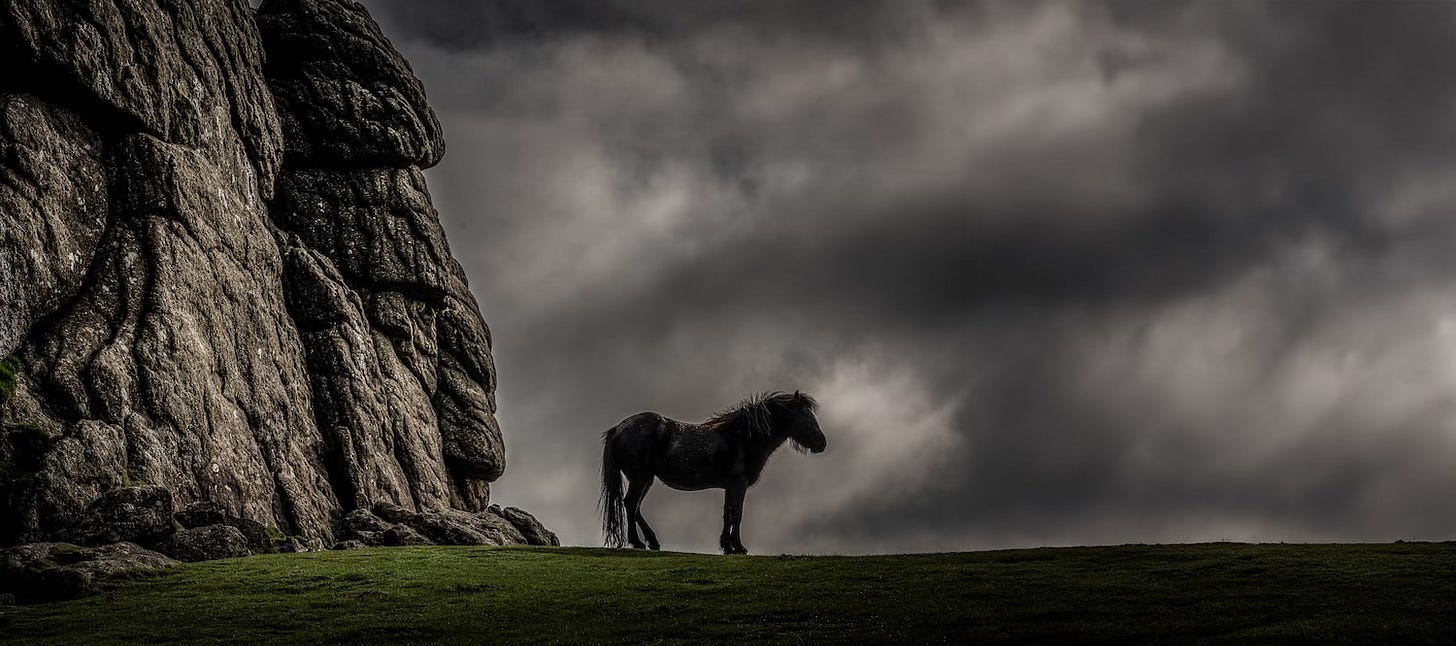Let's Talk About Artificial Intelligence and Photography
When enhancement becomes invention. Finding my comfort zone with the use of AI in photography and where I am drawing the line.
My Relationship with AI
In my other life as a technology and business leader, I use AI extensively. It introduces efficiency savings into businesses and day-to-day tasks. Even this blog post began with me narrating various ideas into an app on my phone, that uses AI to transcribe and organise my thoughts. AI tools also assist with spell checking and proofreading, tasks I used to rely on my long-suffering wife for.
Now let’s talk about AI in photography, which seems to be a contentious subject at the moment.
Where AI Helps in Photography
Software manufacturers are rushing to incorporate AI into their tools and platforms, even including AI in their names. We could debate what’s truly AI versus advanced algorithms, but either way, these tools simplify life and enhance the editing process.
AI tools can assist with tasks such as image selection and colour correction for photographers handling large projects like weddings or events. However, I have found these pretty hit and miss for the running events I cover. They are also being introduced throughout the editing process, with adaptive profiles, removal tools and advanced masks.
I have no issue personally using AI for tools like generative remove in Lightroom. While I could manually remove a distracting item or a dust spot using more manual tools, generative fill accomplishes this efficiently and effectively. This is the sort of task that feels like a legitimate use of the technology. It’s about making us more efficient and speeding up the editing process. Another example of this is masking. While we can manually create more complex selections in tools such as Photoshop, it’s now so much more efficient to get the computer to do it for you.
And let’s not forget about our cameras. The latest models are stuffed full of innovative software and hardware, using AI to make the photographic process easier. Terms like Neural Engines and Advanced Subject Detection, along with lightning fast auto-focus, are almost guaranteeing you pin-sharp shots every time. Like it or loath it, AI is now being used throughout the photographic process.
Where I Draw the Line
Personally, I draw the line at adding items into images or fundamentally changing the overall scene. Sky replacements, generative expand, composite images. These step over the line from photography into computer based art, in my opinion at least. I get it and admire it as an art form in itself, but to me it’s no longer photography.
For example, I took the photo below on Dartmoor of a pony silhouetted by the sun against the rocks, which I absolutely love.
However I wished I could have captured a wider shot, but it wasn’t possible due to people just outside the right hand side of the frame. This was just after the generative tools had been introduced by Adobe into Photoshop, which allowed users to magically extend images, and could create the scene I envisioned. So I gave it a go and you can see the result below. Yet I’ve never shared, it until now, because it feels false—a substantial alteration rather than a true representation of what I saw on the day.
The Broader Ethical Implications
About 20 years ago, while cameras were common, we didn’t carry them everywhere. Now it’s effortless for anyone to pull out a phone and take snapshots. Photography remains an art form, requiring a creative eye and input, even when using a mobile phone. However the ubiquity of cameras has potentially diminished photography’s perceived value and AI could potentially exacerbate this trend.
Why climb a mountain for a shot or buy a print from someone who did, when an AI generator can create it for you? These AI engines draw from photographs taken by dedicated photographers who have made the effort to capture those moments, often rising before sunrise to do so.
This is one of the most contentious issues today, not only with photos but with all online material. In the art world, that would be classed as forgery and theft. These companies are making huge amounts of money off the back of everybody else’s hard work. How is that fair or ethical?
We can argue that to a certain extent all creative endeavour is unintentional theft. We create things having been inspired by what we’ve seen before. Musicians will unknowingly create riffs that could be deemed to be similar to others. Likewise, in photography, we see photographs online, we see photographs in magazines, and that subconsciously will sit in our minds.
Next time we’re out, we might see something similar. Yes, we create the image, but we’ve used those original sources as inspiration. Where AI is different is that in many instances it is producing almost an exact replica, and then trying to pass it off as a unique composition. I think that’s where the ethical challenge comes in.
AI engines have been extensively scouring the internet, absorbing content to enhance their learning models. They use this source material to create final products without crediting the original authors or creators.
Looking Forward
As I write this, AI technology continues to evolve at a breathtaking pace. The questions I’m grappling with today may seem quaint in a year’s time. But I believe it’s crucial that as photographers engage with these issues now, while the technology is still taking shape.
The path forward is clear for me. I will embrace AI where it enhances my workflow without compromising the authenticity of what I capture. I will use it to remove distractions, not to create fantasies. And above all, I will continue to value the act of being there—of experiencing the moment, feeling the cold morning air, waiting for the light to be just right.
In the end, the human who stood there, made choices, and pressed the shutter at exactly the right moment separates a photograph from an AI generation.
What are your thoughts on AI in photography? Where do you draw the line, if at all? I’d love to hear your perspective in the comments below.





This a very measured and thoughtful take. I agree with you that AI is another tool that when used correctly can enhance your work and simplify a workflow without compromising one's ethics. People have been using AI for years without even thinking of it that way, so their outrage at those who acknowledge using it is often misguided.
Heck, you could even argue that when the world shifted from film cameras to digital cameras they started using AI to capture every image since it's a digital interpretation based on an algorithm controlling a sensor vs an organic chemical reaction to light.
We are in dicey territory when it comes to copies (or replicas if you prefer) and the general theft of creative works by AI companies. There are a few court cases in the US pertaining to written works, and motion picture works that will shape the future of this space for years to come. Pay close attention as the AI companies are lobbying hard to get rid of copyright laws in the US and I fear with this administration and current dismissive trend of certain courts that are stacked against the artist, those rulings might not go in favor of intellectual property...or they'll be appealed and appealed until the AI companies finally reach the court that rules in their favor. The EU may be our guiding light in protecting intellectual property these days as they seem to be proactively creating laws with the intention of establishing ethical AI usage and compensation for artists.
Great post!
I agree completely with your take and I use the tools to the same extent. I believe any respectable photographer with true passion for the craft will not cross that threshold.
What I value about photography over AI imagined stuff, is that what's in a real picture actually happened.
That dramatic sky on that particular afternoon took place on the real world and some photographer was there to use it to tell their story.
We control the colors and remove small distractions and decide to leave things out of the frame and we choose the moment we press the shutter but we abide by reality when doing all of this because that's been the whole point of photography. Otherwise we grab some brushes and paint.
It'll be of utmost importance that we can clearly separate what's AI generated from what's not so we don't loose ground with the stories we tell through this medium.